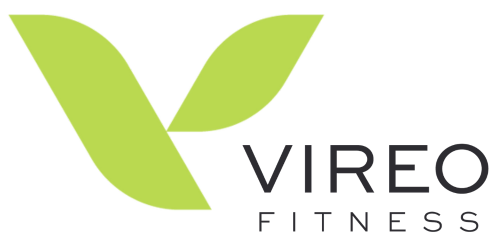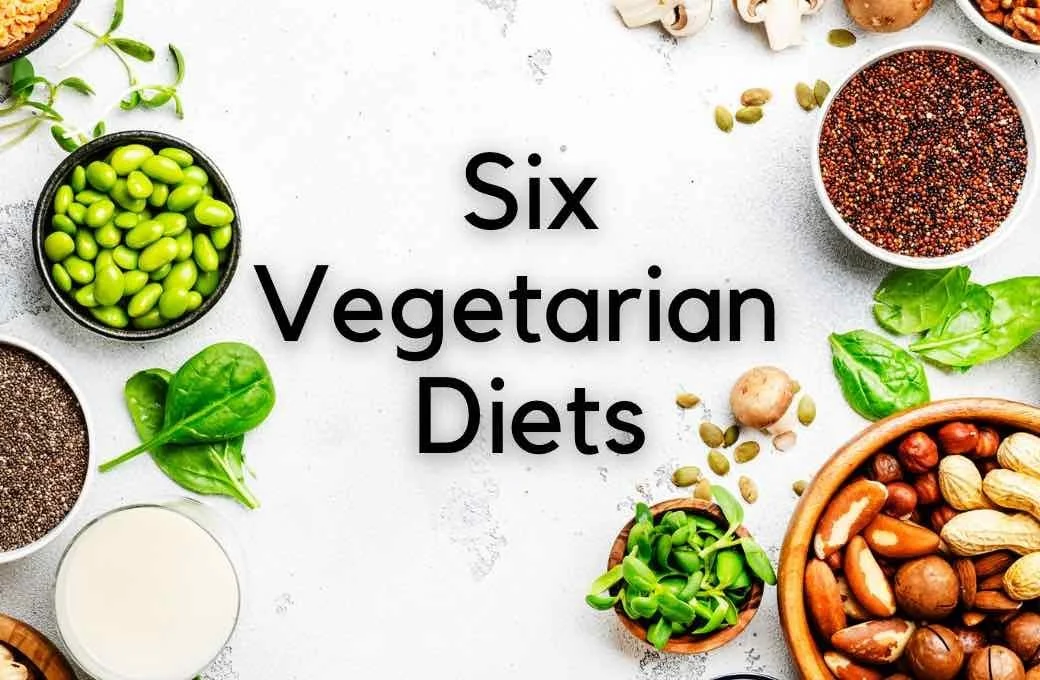6 Types of Vegetarian Diets
Authored by Kyle Golden (September 21, 2023)
Are you interested in adopting a vegetarian diet but not sure where to start? With so many different types of vegetarian diets to choose from, it can be overwhelming to figure out which one is right for you. However, going more plant-forward can have positive health benefits, be better for the planet, and be more compassionate toward animals.
In this article, we will explore why more people are choosing to incorporate more plant-based foods into their diets. We will also discuss six of the most common types of vegetarian diets, from lacto-ovo vegetarian to vegan diets. This might help you find the best fit for your lifestyle and dietary preferences.
Why Go Vegetarian?
Many people choose to adopt a vegetarian diet for various reasons, including health benefits, environmental concerns, and ethical considerations. Plant-based diets have been linked to a reduced risk of chronic diseases such as heart disease, type 2 diabetes, and certain types of cancer.
Reducing meat consumption can help decrease greenhouse gas emissions and reduce water usage, making it an environmentally-friendly choice. For those who prioritize animal welfare, a vegetarian diet can be a way to avoid contributing to the inhumane treatment of animals in the food industry by eliminating animal products altogether or as much as one likes.
Some religions have vegetarian diets for various reasons. For example, in Hinduism, vegetarianism is practiced as a form of non-violence towards all living beings. In Jainism, vegetarianism (with a diet focused on strictly plant-based foods) is one of the five major vows taken by practitioners, as they believe that all living beings have a soul and should be treated with respect and compassion. Similarly, in Buddhism, vegetarianism is encouraged as a means to reduce suffering and cultivate compassion. In Sikhism, a vegetarian diet is often followed as a way to practice self-discipline and purity.
Vegan Diets
Vegan diets eliminate all animal products, including meat, dairy products, eggs, and even honey. Those who follow a vegan diet rely on plant-based sources for all of their nutrients and may supplement with vitamins and minerals as needed.
This type of vegetarian diet is often chosen for ethical reasons, as it avoids any contribution to animal exploitation and cruelty in the food industry. However, it can be challenging to maintain a nutritionally balanced vegan diet and requires careful planning to ensure adequate intake of key nutrients such as protein, iron, and vitamin B12.
A strict vegan lifestyle not only eliminates all animal flesh but also all animal-derived ingredients and products. This means that many who choose a vegan diet will also avoid products that are made with animal ingredients, such as leather, wool, and silk. Veganism is often chosen for ethical reasons, as it seeks to avoid any contribution to animal exploitation and cruelty in all areas of life, not just the food industry.
Lacto-Vegetarian
A lacto-vegetarian diet is a type of diet that excludes eggs and meat, but includes dairy products. This diet is often followed by individuals who wish to avoid the consumption of meat for ethical or environmental reasons, but still want to consume dairy products for their nutritional benefits.
Eliminating dairy from the diet can be challenging because dairy products are a common source of several important nutrients, including calcium, vitamin D, and vitamin B12. Calcium is essential for bone health, while vitamin D is important for calcium absorption and immune function. Vitamin B12 is necessary for proper neurological function and the production of red blood cells. It can be a challenge to obtain these nutrients from plant-based sources alone, so individuals who eliminate dairy from their diet may need to supplement or carefully plan their meals to ensure adequate intake.
Because many processed foods contain dairy products, like cheese, some people don’t want to take on the added dedication to eliminating all dairy from their vegetarian diet.
Religions such as Hinduism, Jainism, and certain branches of Buddhism, promote lacto-vegetarianism as a part of their beliefs. For example, most who practice Jainism eat dairy products but do not eat eggs or any other animal products.
Lacto-Ovo Vegetarian
Lacto-ovo vegetarianism is a type of vegetarian diet that includes plant foods and allows for the consumption of dairy products and eggs but excludes all meat. Some vegetarians include eggs in their diets for their nutritional benefits, as eggs are a good source of protein and other nutrients such as vitamin B12 and vitamin D. Additionally, some vegetarians may choose to consume eggs for ethical or environmental reasons, as long as the eggs come from free-range or ethically-raised chickens.
Socializing around food can be challenging for those who follow a strict vegan diet. Also, many processed foods and restaurant foods contain eggs as well as dairy products. The ease of navigating these foods and social gatherings is another reason most vegetarians choose to keep eggs and dairy products included in their diets.
Ovo-Vegetarian
An ovo-vegetarian diet is one that includes plant foods and eggs, but not meat or dairy foods. This type of diet can be followed for ethical or environmental reasons, as it avoids the consumption of meat and dairy products that often come from factory farming. Eliminating dairy from the diet can be beneficial for those who are lactose intolerant, as it eliminates the consumption of dairy products that are often hard to digest.
Choosing ethically sourced eggs is an important consideration for those following an ovo vegetarian diet. While eggs are a good source of protein and other nutrients, the welfare of the hens that produce them should also be taken into account. Purchasing eggs from local farmers or co-ops can also help ensure that the hens are raised in a responsible and sustainable manner.
Another option is to raise backyard chickens for a personal supply of eggs. This not only ensures that the eggs are ethically sourced, but also provides a rewarding and educational experience for individuals and families. However, it's important to research and follow proper care and feeding guidelines to ensure the health and well-being of the chickens.
Overall, choosing ethically sourced eggs is an important aspect for ovo-vegetarians to consider. This can also help to support responsible and sustainable farming practices in general.
Pescatarian Diet
A pescatarian diet is a type of vegetarian diet that includes fish, seafood, dairy, eggs, and plant foods. Pescatarians do not eat meat or poultry. This diet is often followed for health reasons, as fish and seafood are rich sources of protein and essential fatty acids such as omega-3s.
Some individuals may choose a pescatarian diet for ethical or environmental reasons, as fish and seafood are typically considered to have a lower environmental impact than meat and poultry. However, certain types of fish and seafood can contain high levels of mercury and other pollutants, so pescatarians may want to choose sustainably sourced options and consume them in moderation.
Choosing fish that are sustainably sourced can help prevent overfishing and unsustainable fishing practices. Unsustainable fishing practices lead to the depletion of fish populations, which can disrupt the balance of the marine ecosystem and harm other species that depend on those fish for food. In addition, unsustainable fishing practices can damage marine habitats and ecosystems, including coral reefs and other sensitive areas.
Overall, choosing sustainably sourced fish is an important way to support the health of our oceans and the environment, while also promoting responsible and sustainable fishing practices.
Flexitarian Diet
A flexitarian diet, or semi-vegetarian diet, allows for occasional consumption of meat or fish. Flexitarian diets often prioritize plant-based foods but may incorporate small amounts of meat or fish for variety, to meet their nutritional needs or for social reasons. This approach can be more sustainable and manageable for some individuals, as it allows for flexibility and can be adapted to different dietary preferences and lifestyles. Reducing meat consumption can have positive health benefits and can help reduce the environmental impact of food production.
Tips For Going More Plant-Based
Whatever vegetarian diet you may want to choose, going more plant-based can be a great way to improve your health, reduce your carbon footprint, and show compassion for animals. Here are six tips for those wanting to transition to a more plant-based diet:
Start small: Incorporate more plant-based meals into your diet gradually. Try replacing one meat-based meal a day with a plant-based option. Over time, you can increase the number of plant-based meals you eat.
Experiment with new recipes: Look for plant-based recipes online or in cookbooks to find new and exciting meals to try. This can help keep your meals interesting and satisfying.
Focus on whole foods: Try to choose whole, plant-based foods such as fruits, dark green vegetables, nuts, seeds, legumes, and whole grains. This can ensure that you are getting a variety of nutrients and can help you feel more full and satisfied.
Don't forget about protein: You don’t have to eat meat to get plenty of protein in your diet. Many plant-based foods are rich in protein, such as beans, lentils, tofu, and tempeh. Incorporating these protein-fueled foods into your diet can help ensure that you are getting enough protein in your healthy vegetarian diet.
Get support: Find a friend or family member who is also interested in going plant-based and support each other on your journey exploring vegetarian eating. You can also join online communities or attend plant-based meetups to connect with like-minded individuals and get inspiration and support.
Commit to learning more: Continue to research and always learn about vegetarian diets. Currently, nutrition science is encouraging a primarily plant-based diet and encouraging a reduction in animal products, but nutrition science is always changing. The more knowledge we accumulate the better we can improve our own diets for our health and for the benefit of the planet and animals.
If you are thinking of going more plant-based and are having difficulty or have questions, consulting with a nutritionist who specializes in helping clients develop a well-planned vegetarian diet could be beneficial. As always, before making dramatic shifts in your diet it is recommended that you consult with your physician or other qualified medical provider.
(Consider this article as general information on health, fitness, and lifestyle. Always consult your physician or health care provider before making significant changes to your diet or lifestyle. This article should not be considered advice or a substitute for advice from your physician or other qualified health care provider.)
Hi, I’m Kyle Golden,
Founder and Coach at Vireo Fitness. For over 16 years I have helped hundreds of clients just like you find their path to better health. Get in touch today and find out how I can help you embrace a better lifestyle and realize your full potential!








